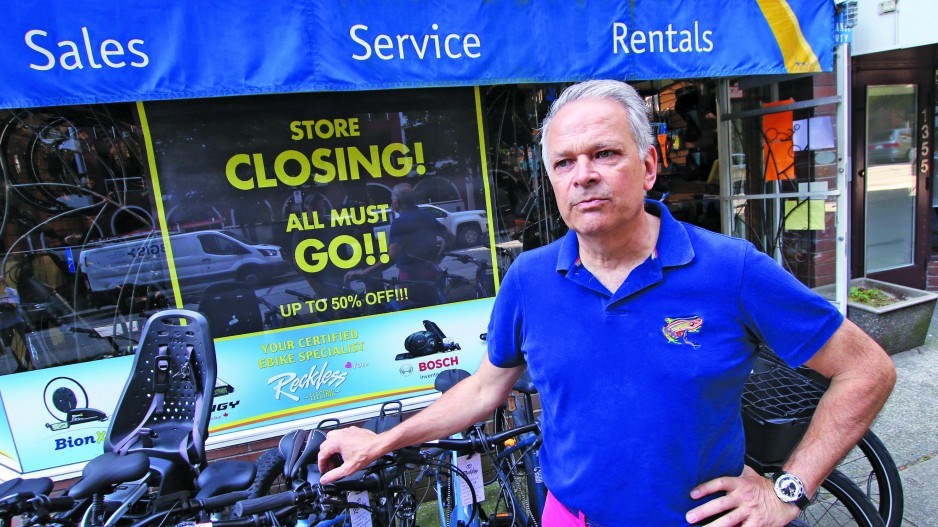BIV reporters examined British Columbia's frugality reality – and how local businesses are navigating skills shortages, inflation, chronic COVID complications and supply chain dysfunction.
This is one of eight articles that capture acute corporate concerns. Read on to explore different business owners' survival plans and strategies.
Reckless Bikes
A four-location retailer that sells, rents and repairs bicycles and e-bikes.
Marketplace cost challenges
Reckless Bikes owner Paul Dragan has had to grapple with a range of challenges through the pandemic, but none bigger than finding staff.
“People have a lower interest in working,” he told BIV. “It’s a real challenge to find qualified people.”
The spike in demand for bicycles during the pandemic has also subsided, meaning that instead of selling about three entry-level bikes, priced up to $800, per day, he sells one or two every other day.
His first mover advantage in launching electric bike sales about eight years ago has also evaporated, as competition has sprouted, thereby hurting sales.
Marketplace frugality solutions
To find and keep staff, Dragan has raised wages. He has also shortened his stores’ hours to ensure a sufficient number of employees can provide quality customer service.
His primary store, at 110 Davie Street, would normally be open in the summer between 8:30 a.m. and 7:30 p.m. This year, its hours are 9:30 a.m. to 5:30 p.m., he said.
The biggest business decision Dragan made this summer was to not renew his lease for his eight-year-old store at 1357 Hornby Street, which is slated to close at the end of October.
“If you look at a Tim Hortons or a Starbucks, they do real estate reviews, and say, ‘Which stores are working? Which ones aren’t?’” he said.
“If a store is marginal, then maybe it’s best to put our resources elsewhere.”
Dragan said closing the store will free up one employee to work at other store locations.
When Dragan opened his Hornby Street store, few retailers in Vancouver specialized in electric bikes, so he saw a market opportunity in having a store that had a wide range of e-bike options for customers, he said.
The City of Vancouver then upgraded its Burrard Street bike lane, which led more people to use that street instead of cycling in the Hornby Street bike lane, he said.
“It’s a bit like selling ice cream on the seawall, and then they divert the seawall,” he said.
He said there is also limited pedestrian traffic on the block of Hornby Street where the store is located.
To compensate for softened demand for new entry-level bicycles he has started to put those items on sale – even though that crimps his profit margin.
“This is the first time in three years that we have had to put bikes on sale,” Dragan said.
Read more:
- Managing supply chain complications and client expectations key
- Builder battling fuel costs, facing wage pressures
- Grappling with global lumber market volatility
- Onsite up against cost hikes as testing business booms
- Frugality for freelancers
- Mondays on Penthouse cost mitigation menu
- Launchpad leaning on outsourcing to cut costs




